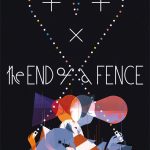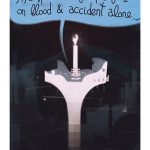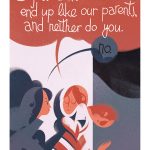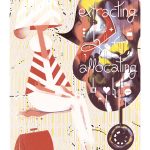Review: End of a Fence by Roman Muradov
End of a Fence is a pair of firsts; it is @kushkomikss‘ first book in the kuš! mono series, a longform work from a publisher that has traditionally focused on its international comics anthology s! and its mini kuš! comics. It’s also the first fully digital work of Roman Muradov, the illustrator/teacher/cartoonist based in San Francisco.
In End of a Fence, Muradov asks the question “what if we were segregated by compatibility?” and creates a science fiction world where concepts like data compression and physical space are melded into one. It’s likely not a coincidence that in Muradov’s first fully digital work the world building is so fully realized around current digital concepts; characters pull down data from their minds for archiving, use computer analysis to match their compatibilities with digital living spaces, and unzip physical suitcases and decompress full houses from their innards. These digital interfaces mask and amplify the complexities of human interaction.
No matter if coincidence or not, the conceptual ideas and Muradov’s art go hand in hand. Each page is a full panel; there’s a 16-bit glitchiness to it all, characters merging in the center of a JPEG compression blur. Spaces and lines outside the main focus become pixilated and blocky, only to patch themselves on the next page. These “errors” in image appear more frequently when character compatibility decreases.
Muradov seems intent on obscuring the narrative of End of a Fence. Text scrolls out of word balloons, leaving readers to decipher the meaning of certain statements, and because of the structure of the comic, the raw physicality of some of the action is hidden in the blur of incompatible characters.
Muradov also can’t seem to ignore the pull of a good pun – the book’s title is a pun on ‘the end of offense’ and one series of pages talk about a vase as a genuine weiwei (after Ai Weiwei, the famous artist) and when half of the vase is used to foul purpose later in the book, it’s called a wei, with characters saying things like “no wei” and “oy wei.”
Despite the tongue-in-cheek nature of the dialogue, the violence of End of a Fence is its main feature. The comic, gorgeously illustrated, contemplates the nature of desire and the human condition.
End of a Fence is a lovely little comic. Kuš! has put in a lot of attention to the details, with lush color printing and tiny dots of spot gloss that make the book stand out from even
kuš!’ previous work. And Muradov has created a lush, frightening vision of the future, a future where, despite intricate algorithms and comprehensive mind overhauls, humanity’s darkness still prevails.




